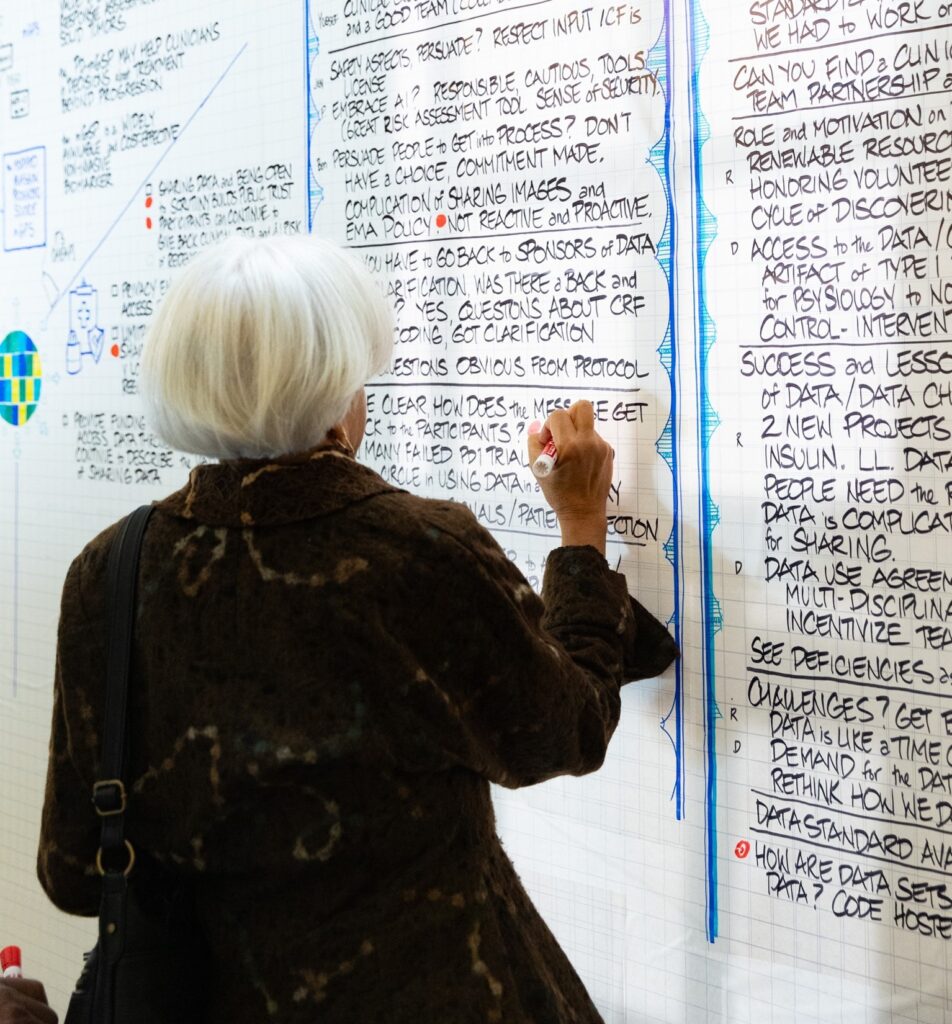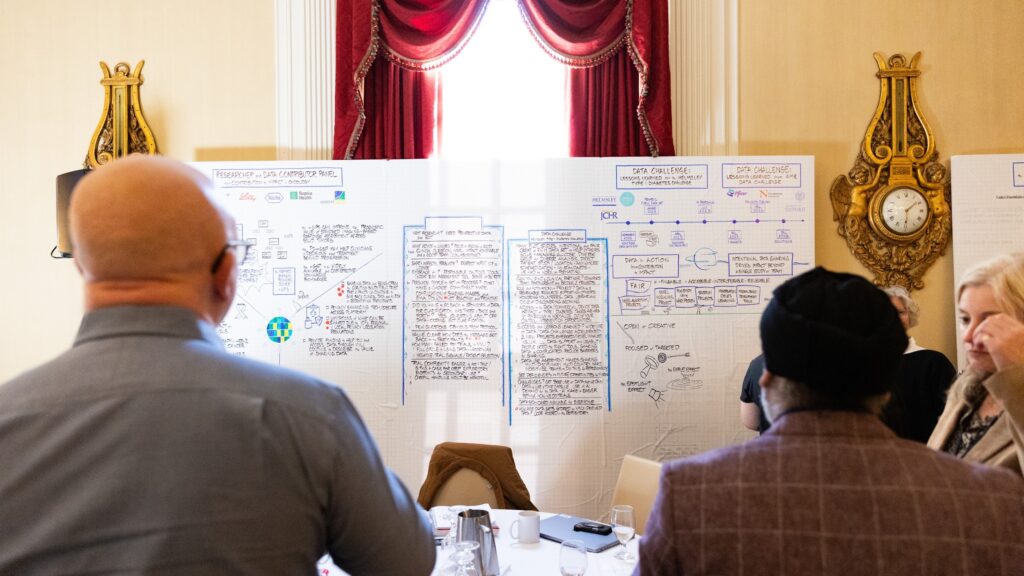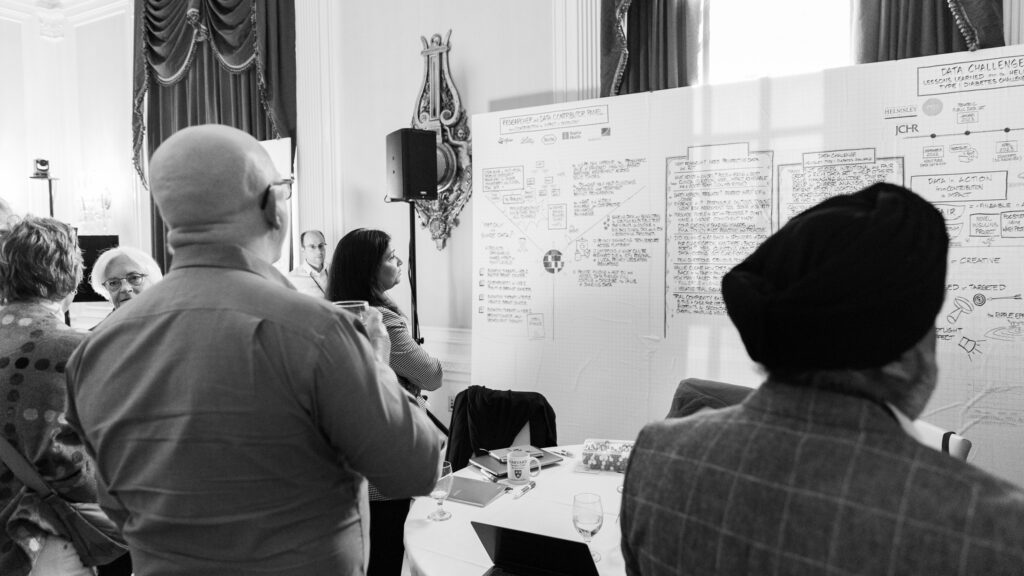
Byeongzu Ghang is an Associate Professor and Rheumatology Specialist in the Jeju National University School of Medicine, Jeju, Korea. His primary research and clinical focus is on gout, inflammatory myositis, and interstitial lung disease (ILD). Dr. Ghang’s team submitted a research proposal to access Vivli to conduct analysis relevant to their topic, “Reanalysis of CARES study to investigate the changes of estimated glomerular filtration rate after long-term febuxostat or allopurinol treatment in gout patients.” The team’s completed research has recently been presented to the research community in publications including the Journal of Rheumatic Diseases and Kidney International. He sat down with Vivli to tell us more about accessing individual participant data to advance this research, and the potential for using biomarkers to improve clinical research focus and therapeutic targets.
Tell us more about your research. What is the current state of management in your public disclosure topic?
Our research focuses on the impact of urate-lowering therapy (ULT) in delaying the progression of chronic kidney disease (CKD) in patients with gout. Through a post-hoc analysis of the CARES trial, we discovered that maintaining low serum uric acid (sUA) levels, particularly below 6 mg/dL, is significantly associated with a reduced risk of CKD progression. This finding challenges earlier conclusions drawn from trials on asymptomatic hyperuricemia, which often excluded patients with gout. Currently, ULT remains underutilized in CKD management, with uncertainty surrounding its benefits for kidney function. Our study provides compelling evidence supporting its protective role in gout patients.
What led you to want to research this topic?
The intersection of gout, hyperuricemia, and CKD is a clinical area with considerable unmet needs. While hyperuricemia is linked to CKD progression, whether this relationship is causal has been debated. My clinical experiences with gout patients experiencing CKD progression, combined with the lack of robust evidence in this domain, motivated me to explore whether ULT could serve as a meaningful intervention. Furthermore, the potential of addressing CKD progression through a modifiable risk factor like sUA levels was an appealing avenue for research.
What difference do you hope your research might make in the field/for patients and how has it moved forward the treatment of patients?
We aim to bridge the gap in understanding the renal benefits of ULT specifically for gout patients, a group often overlooked in earlier trials. By demonstrating that sustained low sUA levels correlate with stable or improved renal function, our findings can influence clinical guidelines to integrate ULT more robustly into CKD management for gout patients. This research could ultimately improve patient outcomes by reducing CKD progression, thereby decreasing dialysis dependency and associated healthcare burdens.
How could your findings be used in future clinical trials on this disease area?
Our findings provide a strong rationale for designing clinical trials focusing on ULT in gout patients with varying CKD stages. Future studies could investigate optimal sUA targets, the long-term renal outcomes of ULT, and the role of MSU crystal reduction in kidney protection. Furthermore, the mechanistic insights from our study can guide the exploration of novel therapeutic targets in CKD progression.
How did the data you accessed through Vivli help you in answering your research question?
The Vivli platform was instrumental in providing patient-level data from the CARES trial. This enabled us to perform a detailed post-hoc analysis, including propensity score matching and multivariable regression, to evaluate the relationship between sUA levels and CKD progression. Without this access, it would have been impossible to derive such granular insights into the renal benefits of ULT.
What was your experience like in the process of requesting data using the Vivli platform?
The Vivli platform provided a seamless experience in requesting and accessing trial data. Its user-friendly interface and comprehensive repository allowed us to identify and utilize relevant datasets efficiently. The robust data-sharing policies and support provided by Vivli enhanced the overall research process.
Would you use the Vivli platform again? Would you recommend Vivli to others? What improvements would you recommend?
Absolutely, I would use Vivli again and highly recommend it to other researchers. It is a valuable tool for accelerating scientific discovery. However, one area for improvement could be the inclusion of more real-time assistance during the application process, especially for first-time users navigating data access requirements.
What advice would you give to other researchers about doing this kind of analysis?
Thoroughly understand the dataset and its limitations before diving into analysis. Predefine your hypotheses and statistical methods to maintain rigor and transparency. Also, collaborating with experts in biostatistics and clinical data interpretation can add significant value. Lastly, platforms like Vivli are invaluable for accessing high-quality data, so researchers should familiarize themselves with such resources.
Further reading
Reanalysis of CARES study to investigate the changes of estimated glomerular filtration rate after long-term febuxostat or allopurinol treatment in gout patients (Vivli Research Request 7388).
Ghang B, Kim J, Yoo. BPOS0284 CHANGES OF ESTIMATED GLOMERULAR FILTRATION RATE AFTER LONG-TERM FEBUXOSTAT OR ALLOPURINOL TREATMENT IN GOUT PATIENTS. Annals of the Rheumatic Diseases 2022; 81:386. https://ard.bmj.com/content/81/Suppl_1/386.1.full
Byeongzu Ghang, Jinseok Kim. Effects of long-term febuxostat or allopurinol on the progression of chronic kidney disease. Journal of Rheumatic Diseases, Vol. 29, Suppl. 1, May 2022 p271 O-54.
Ghang, B. Delayed progression of chronic kidney disease in gout patients during urate-lowering therapy: A patient-level post-hoc analysis of the CARES trial. International Journal of Rheumatic Diseases, 27 (Suppl. 2) P013. http://doi.org/10.1111/1756-185X.15172.
Ghang, B., Park, J., Lee, J.S., Lim, J.S., Kim, H., Liew, D.F., Kim, J., Kang, D.H. and Yoo, B., 2024. Post-hoc analysis of the CARES trial suggests delayed progression of chronic kidney disease in patients with gout during urate-lowering therapy. Kidney International. http://doi.org/10.1016/j.kint.2024.10.022.











 The 2025 Vivli Annual Meeting was held at Loeb House at Harvard University in Cambridge, MA, and virtually on Thursday, October 23.
The 2025 Vivli Annual Meeting was held at Loeb House at Harvard University in Cambridge, MA, and virtually on Thursday, October 23.